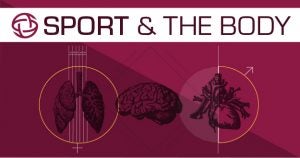Aerobic fitness has greater impact on metabolic health than muscular strength

New studies have shown aerobic fitness can help improve metabolism.

Exercise affects the speed of one’s metabolism, which is also impacted by age, gender and genetics. Muscle cells burn calories faster than fat cells which means, “the more muscle and less fat you have, the higher your metabolic rate,'' according to the Mayo Clinic.
Building muscle helps because as people age they naturally lose muscle mass, which slows metabolism. Two ways you can challenge your muscles and improve your metabolism are through aerobic exercise and lifting weights.
The research regarding metabolism has led to the creation of the new science metabolomics, which is defined as “the comprehensive analysis of metabolites in a biological specimen,” according to the Broad Institute’s Clary B. Clish.
Metabolites are molecules involved in metabolic reactions. They also can be used as building blocks for larger structures and degraded products used during excretion.
Scandinavian researchers conducted a study in 2013 comparing metabolites in active and inactive adults. The research concluded that metabolic health in physically active adults is better than inactive adults.
The adults who exercised regularly had higher levels of lipoprotein, also known as “good” cholesterol, than the adults who didn’t exercise regularly. It also helped elevate their heart health.
The research, however, only focused on how much people exercised. There weren’t any biological or dietary factors included in the study. Some of the same researchers followed up that study by focusing on endurance and strength.
The test included 580 Finnish men who had been called for military training. The men lifted weights and rode stationary bikes to determine their muscular strength and aerobic capacity. Researchers took blood samples, had the men take a general health test and fill out a survey regarding their lifestyles and exercise routines.
Two groups were created based on that information. One group was focused on aerobic fitness and ranked all the men from most aerobically fit to least. The other group focused on muscular strength and was ranked from strongest to weakest.
Researchers then checked their blood for metabolites, comparing the metabolomes in the most aerobically fit to the least, and the strongest men to the weakest. Some men appeared in both groups, but in those instances, the scientists only looked at their stamina or strength specifically.
The results of the study showed that the most aerobically fit men had similar molecular signatures to the adults in the earlier study. They had high levels of good cholesterol and a healthy ratio of proteins to fatty acids.
Two-thirds of the men who were aerobically less fit had molecules that varied in type, amount or ratio opposed to their more fit counterparts, whereas the differences between the stronger men and weaker men were less pronounced.
Dr. Urho Kujala, a professor of medicine and sports science at the University of Jyvaskyla in Finland, conducted both studies and found that even when other variables were controlled, such as body composition and exercise habits, the results were similar. Aerobic capacity affected the metabolism more than muscular strength.
Lamar Smith is a graduate student in the sports journalism program at Arizona State University
Editor’s note: For the 2019-2020 academic year, the Global Sport Institute’s research theme will be “Sport and the body.” The Institute will conduct and fund research and host events that will explore a myriad of topics related to the body.
Related Articles
Study: Exercise can strengthen your memory as much as your muscles

